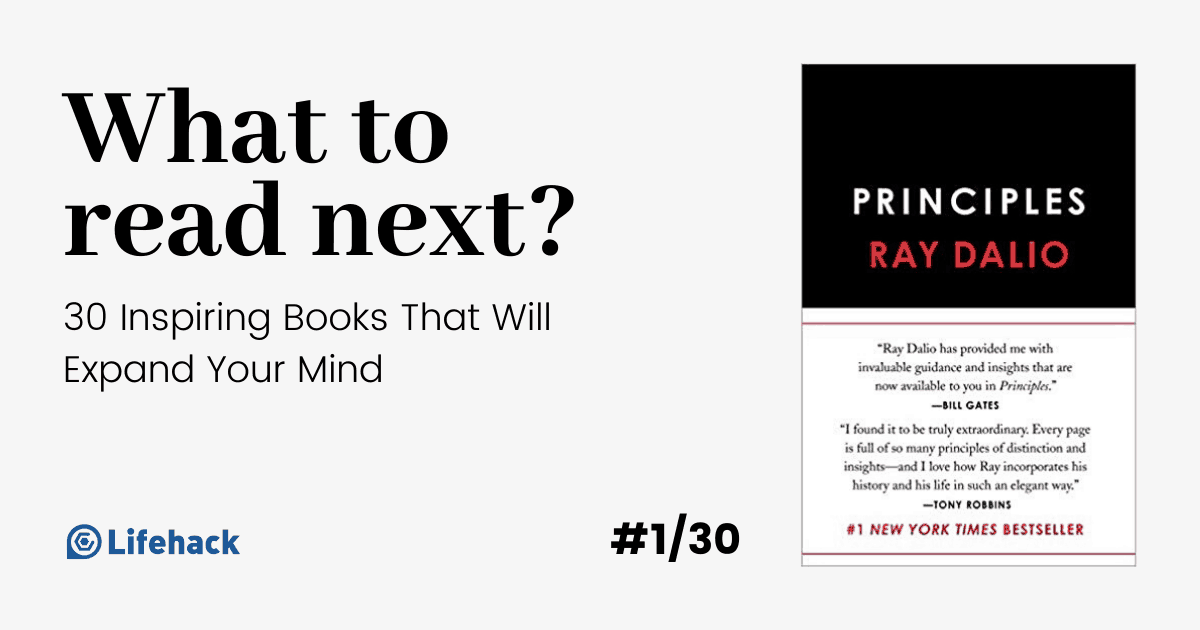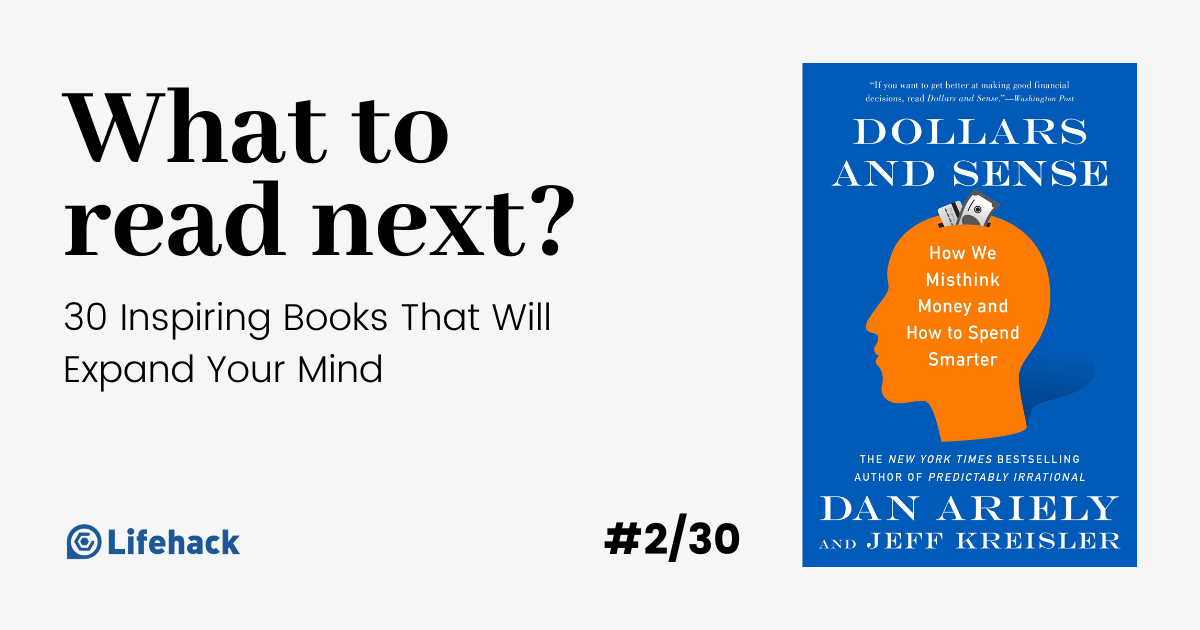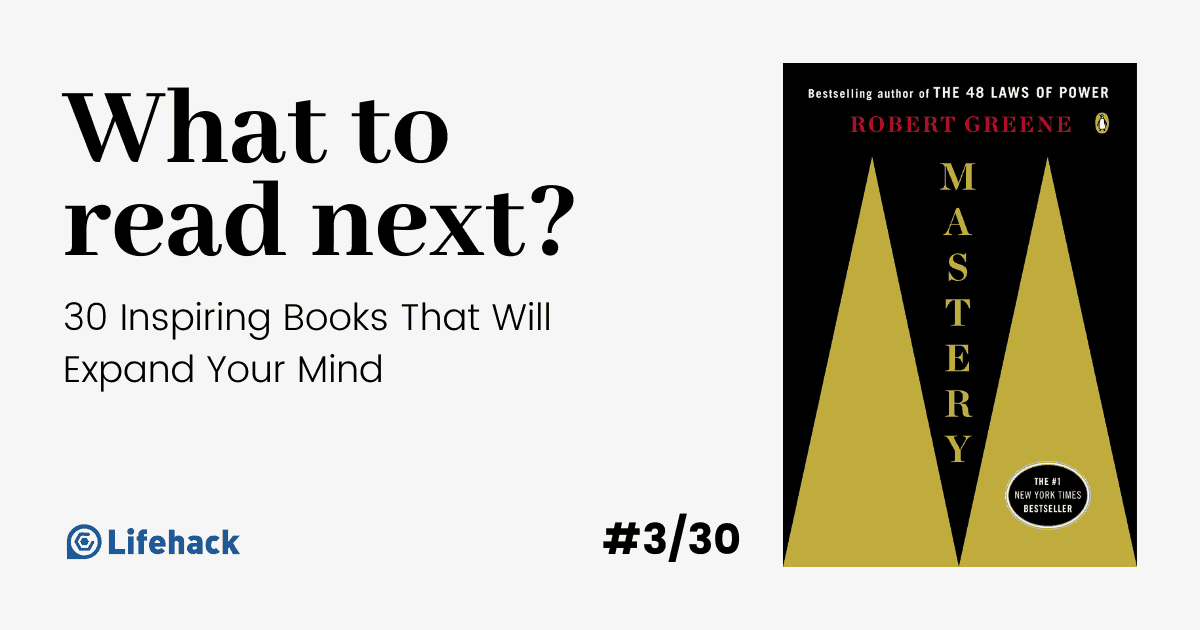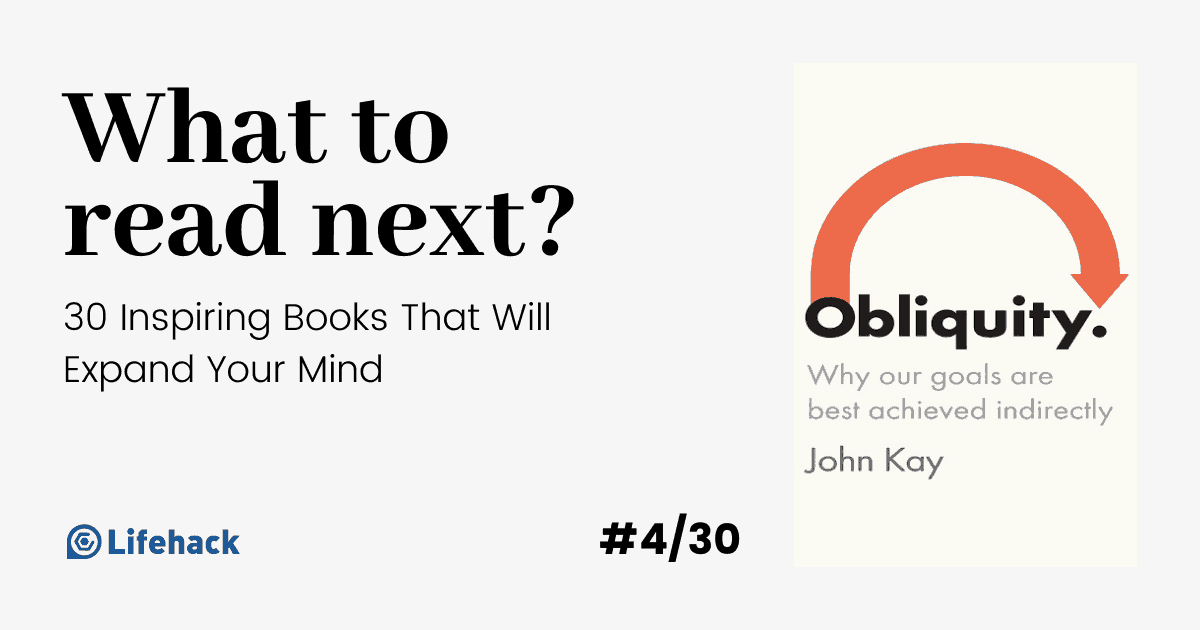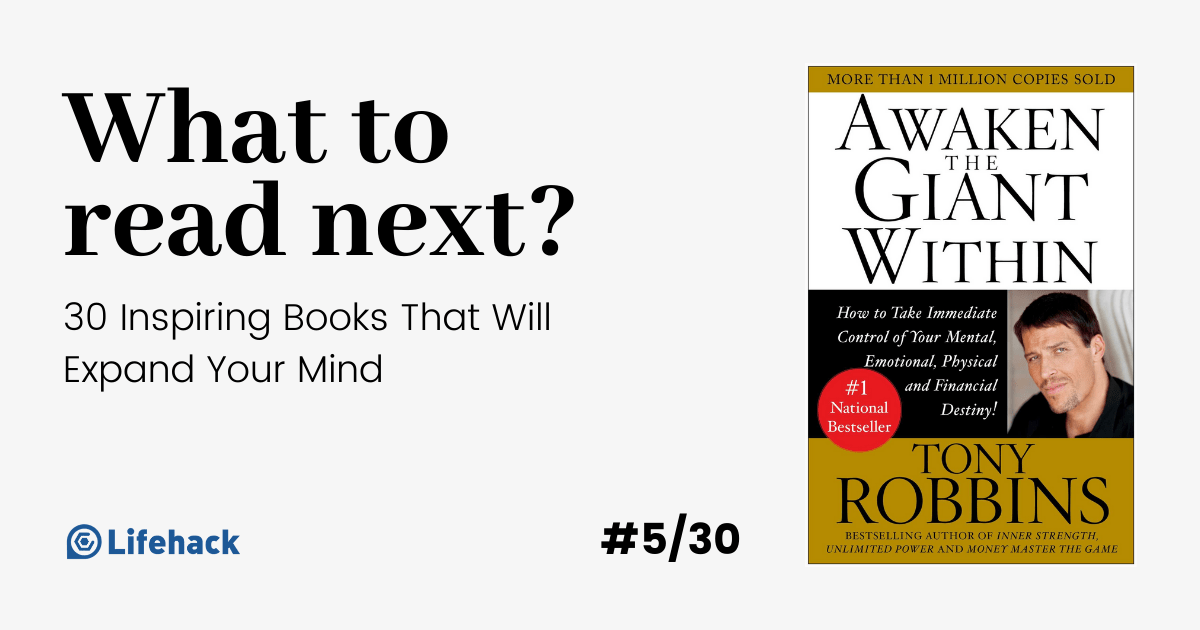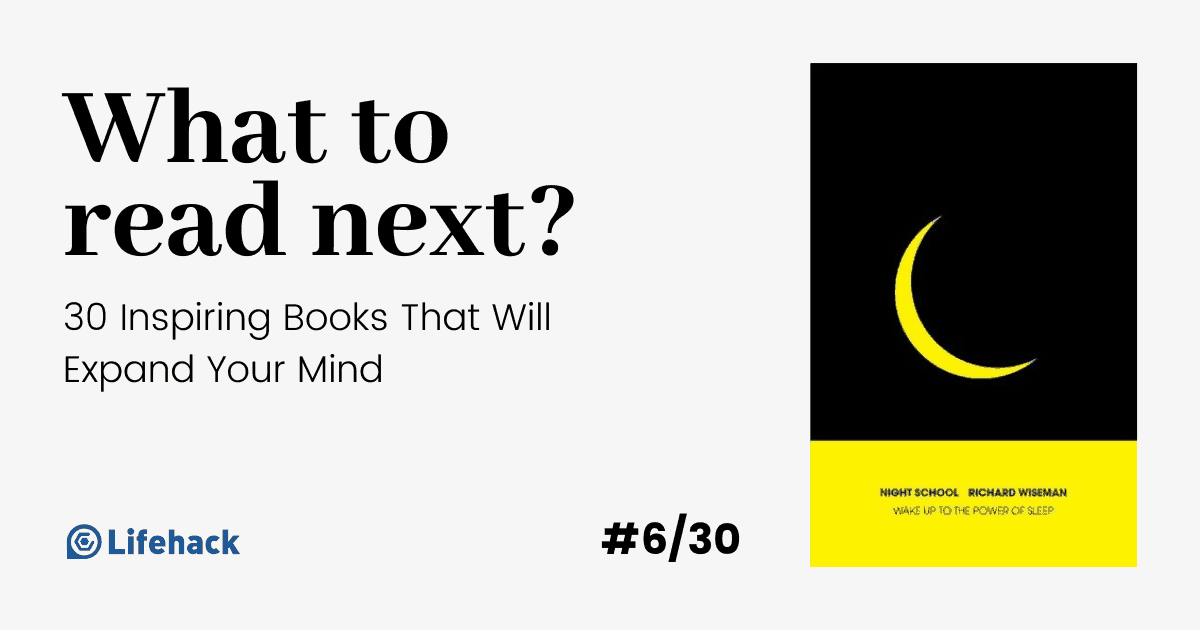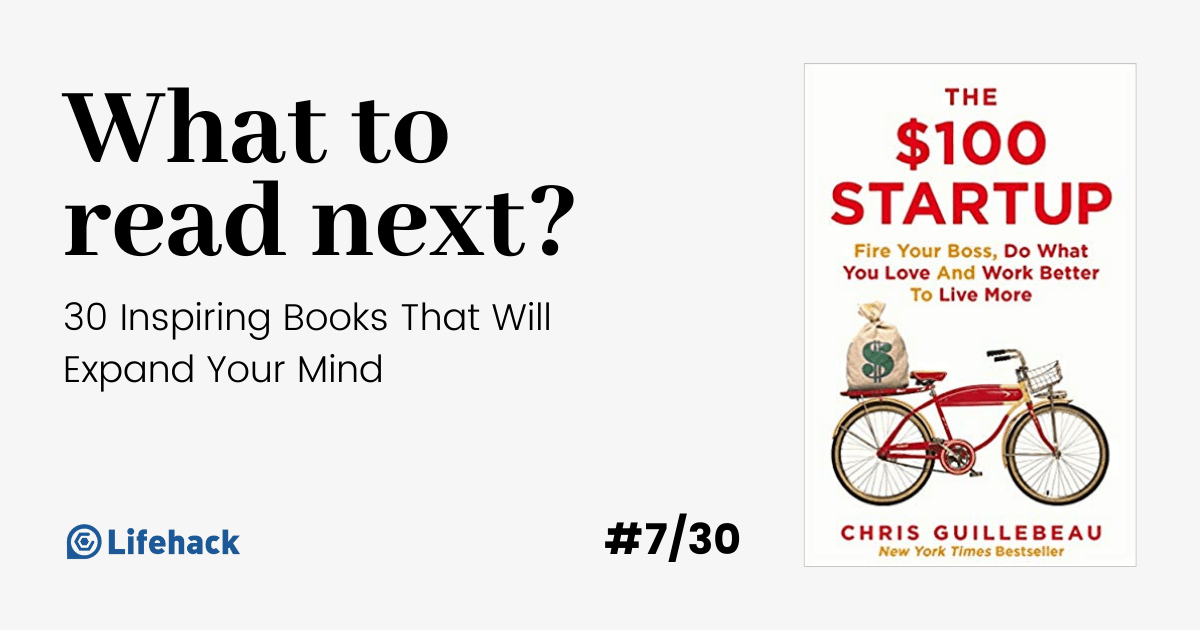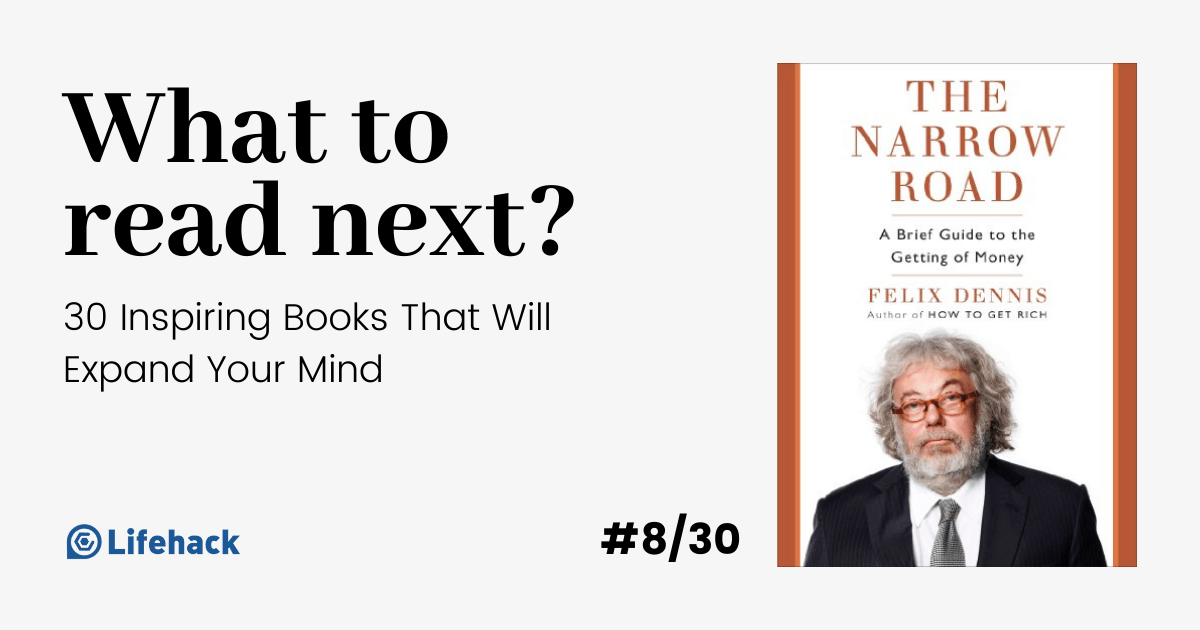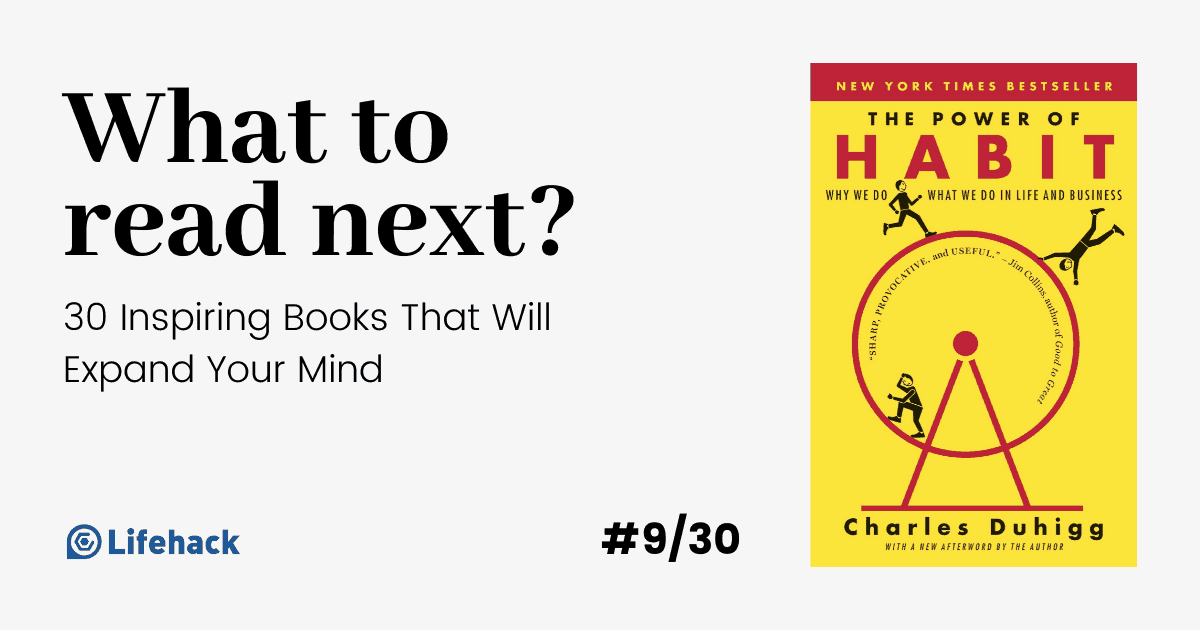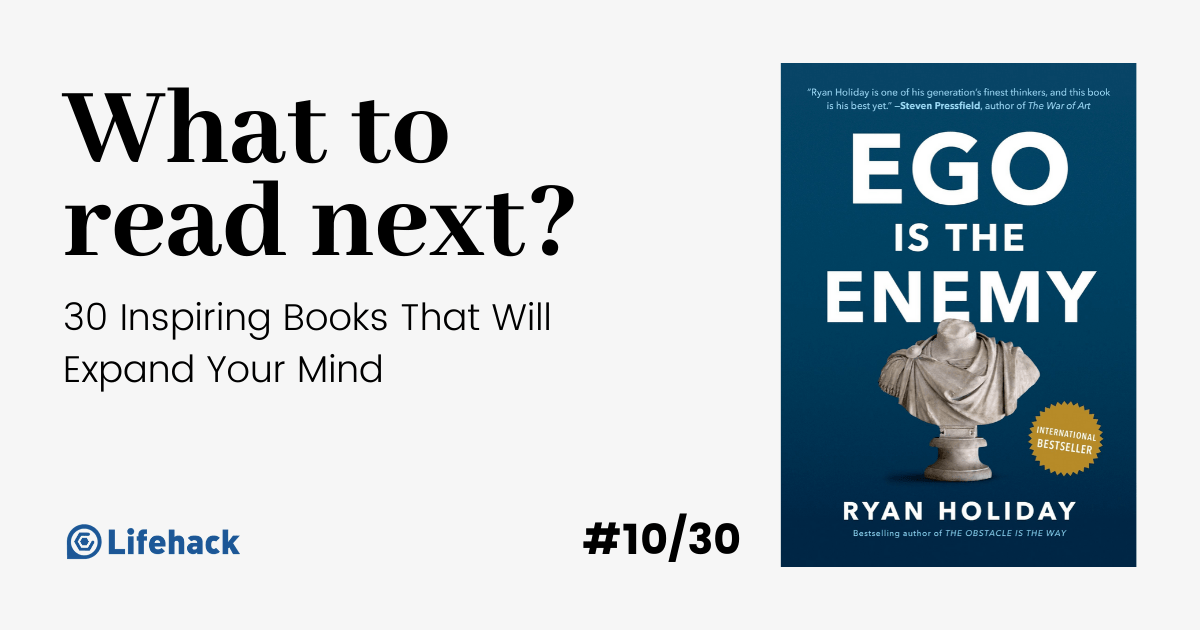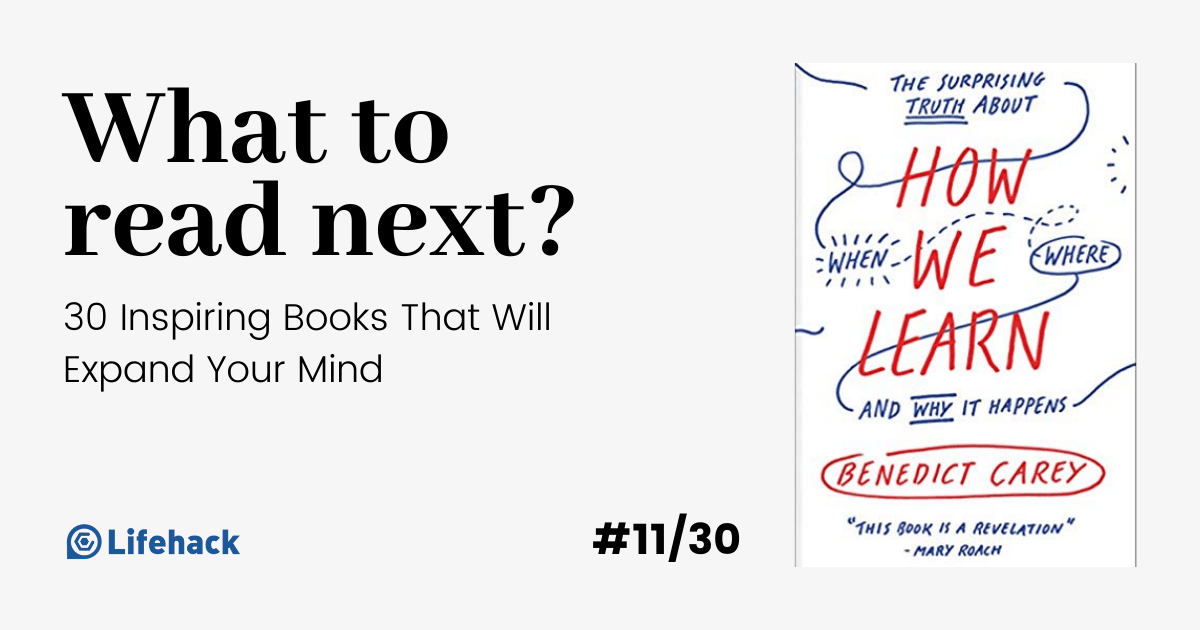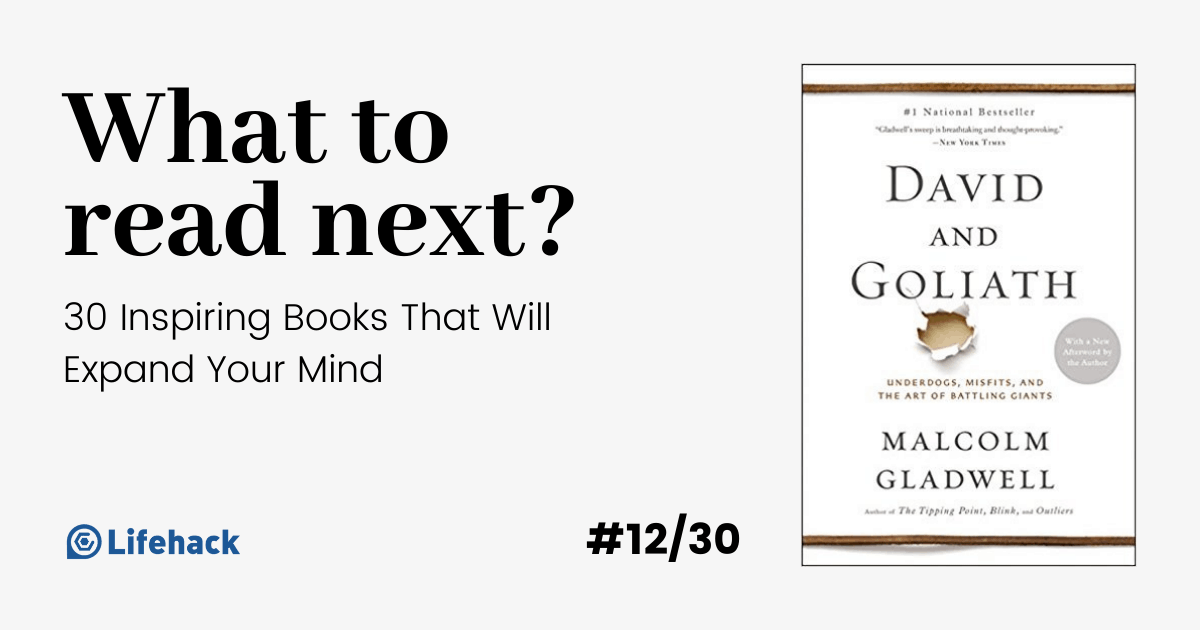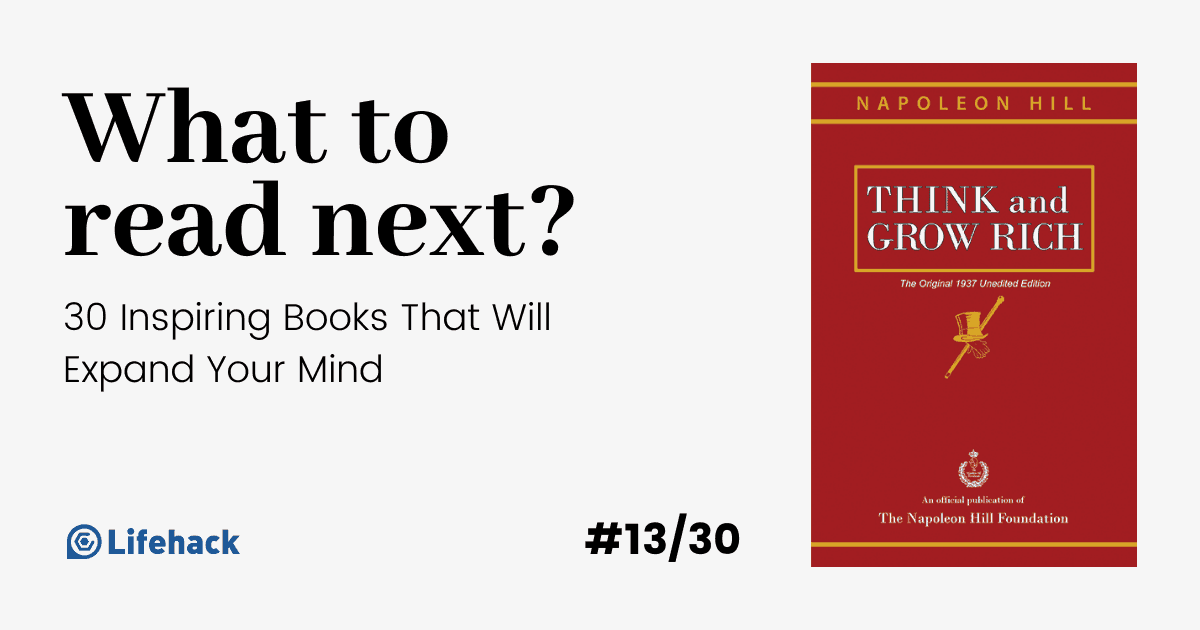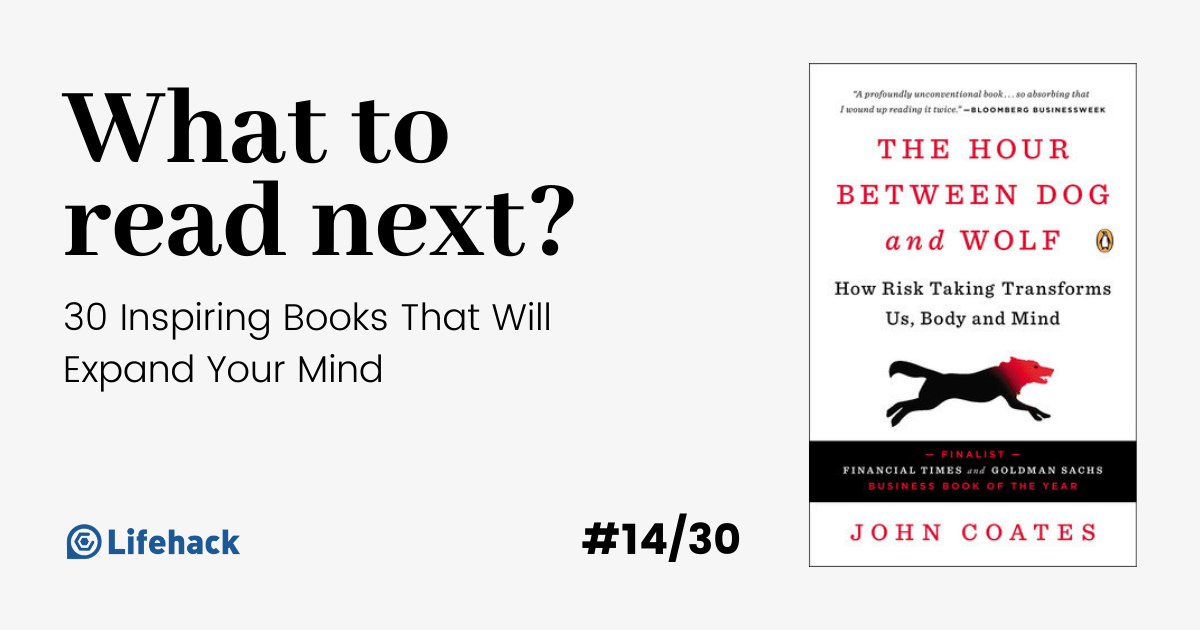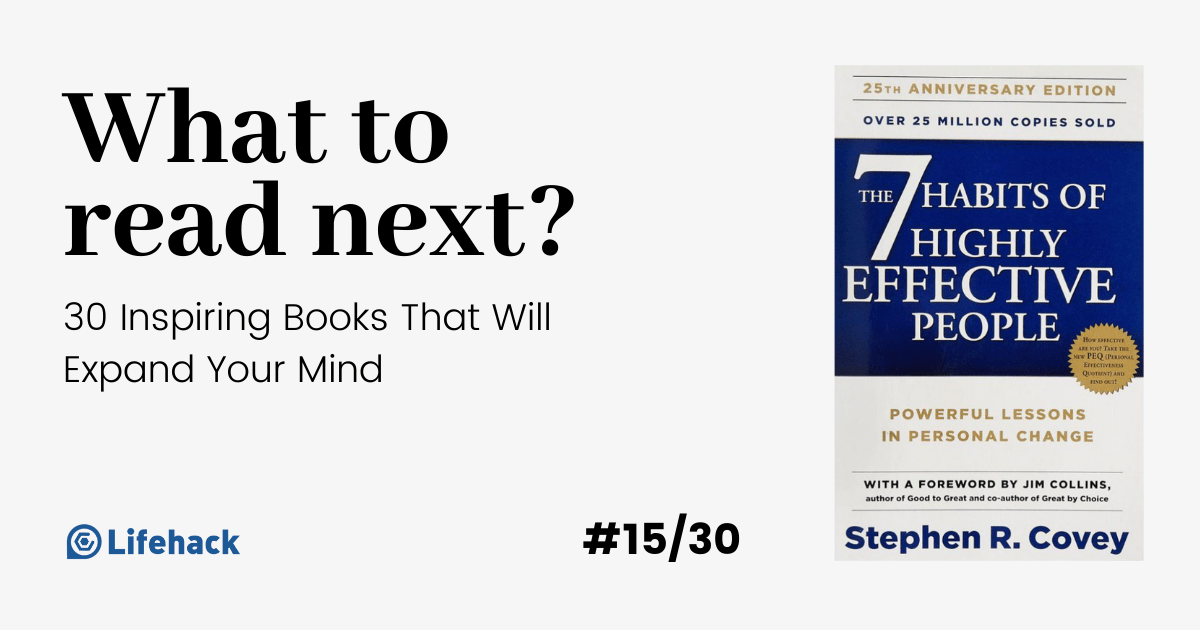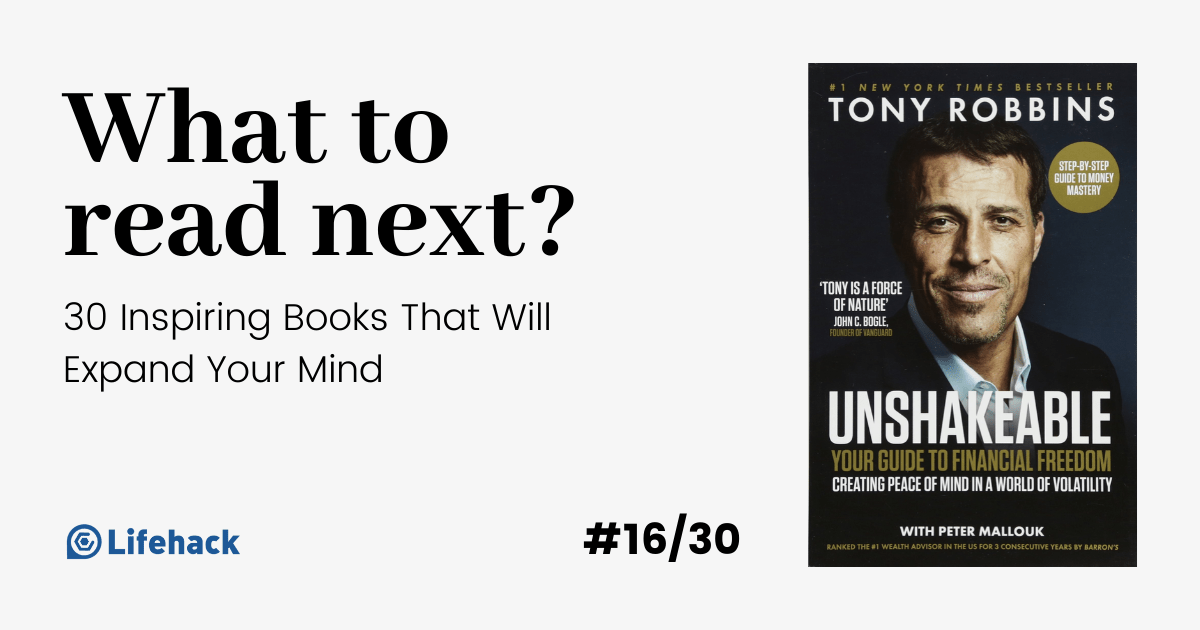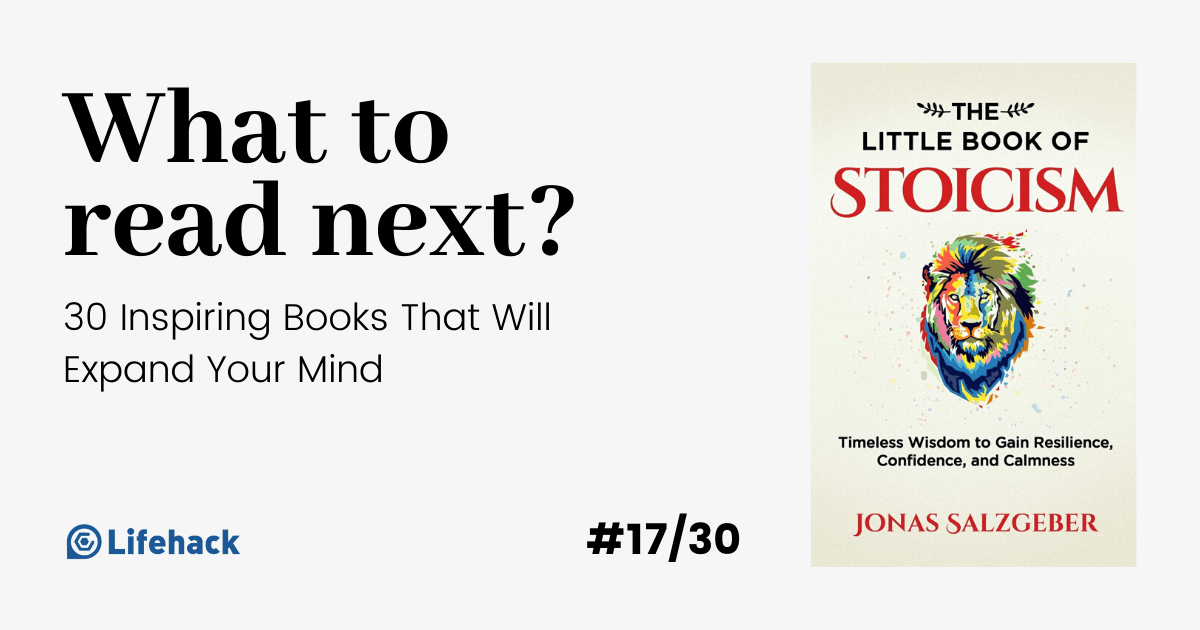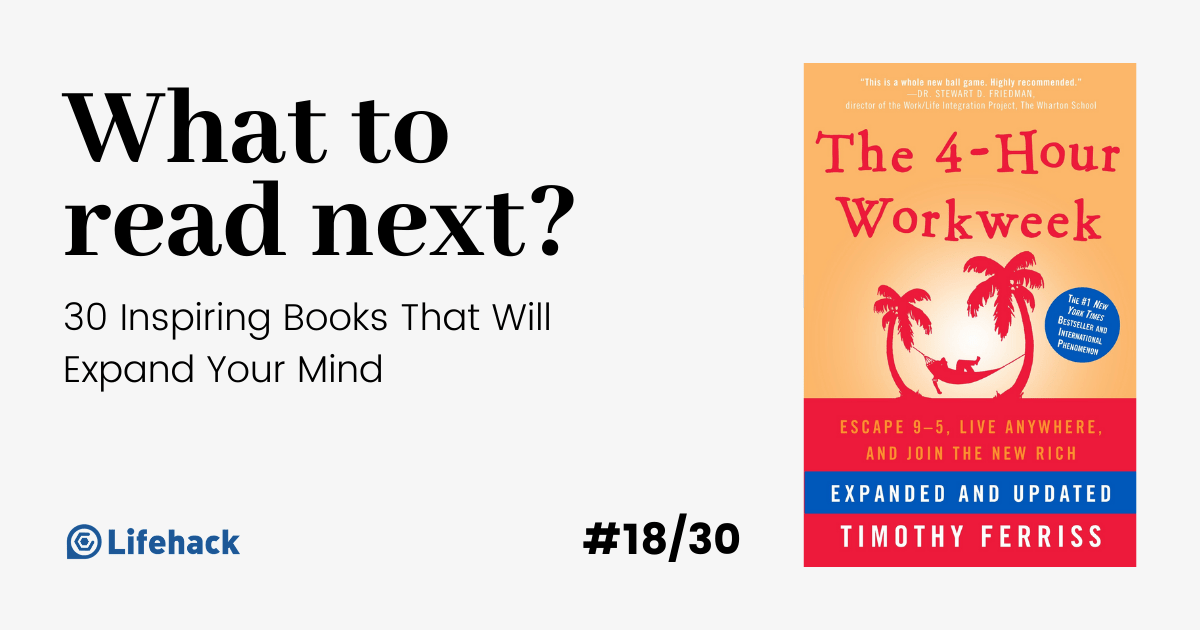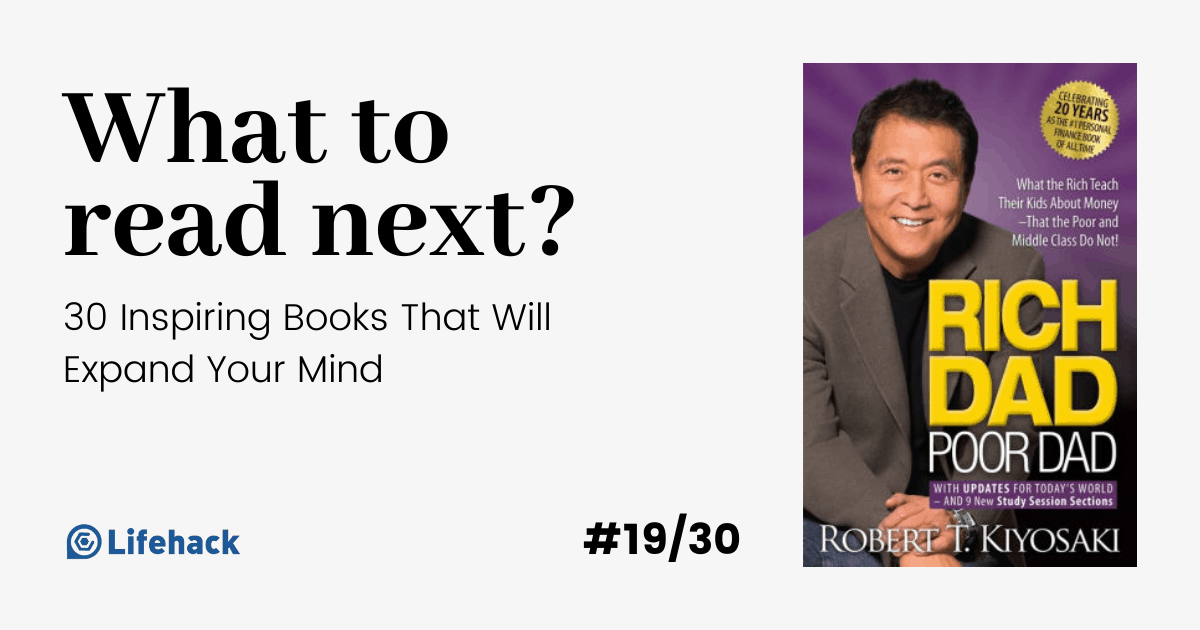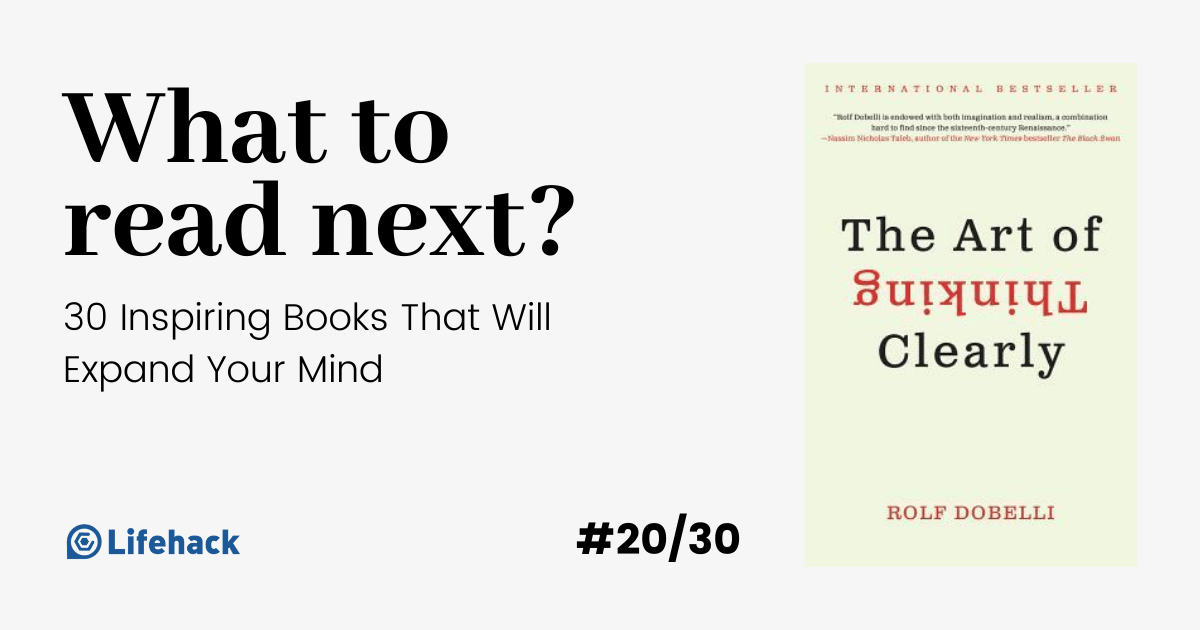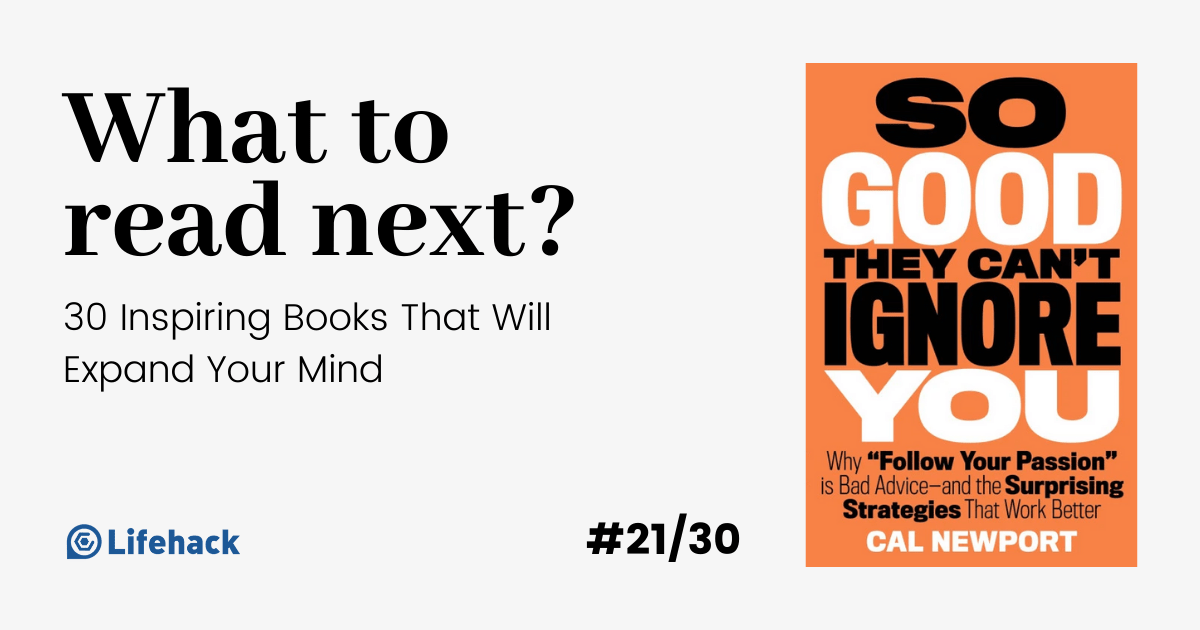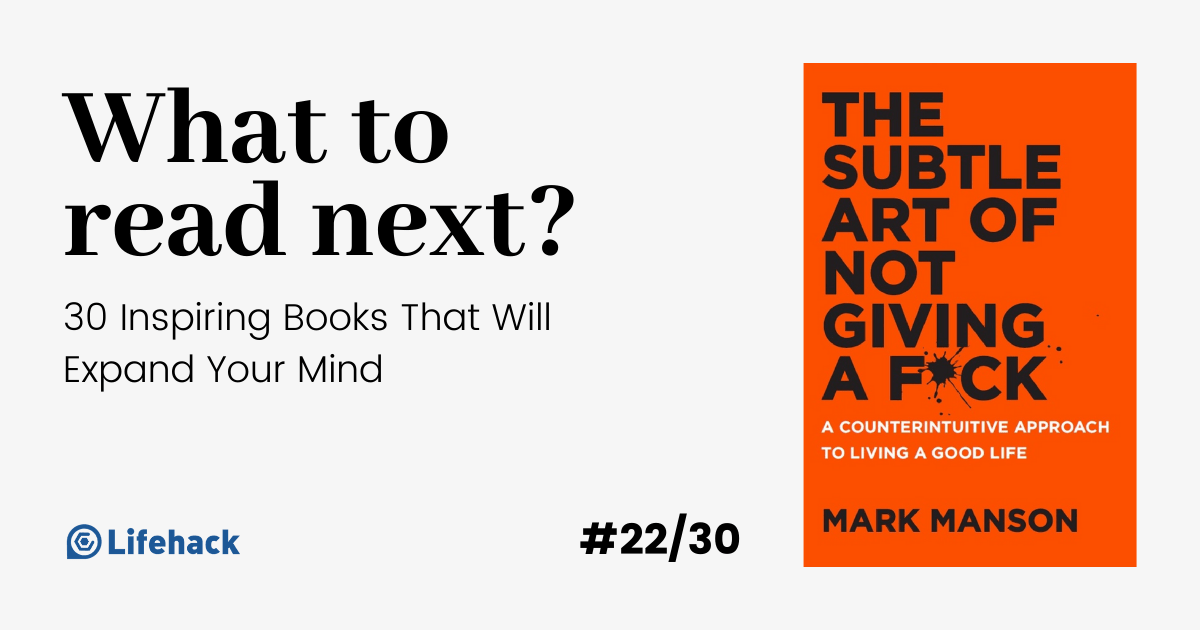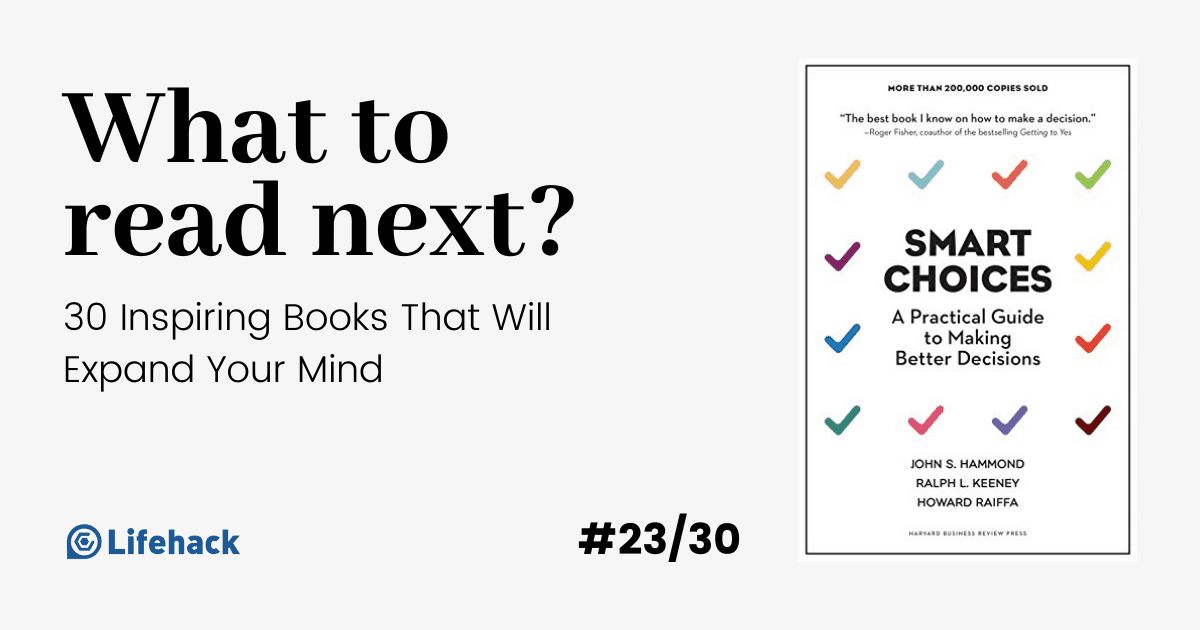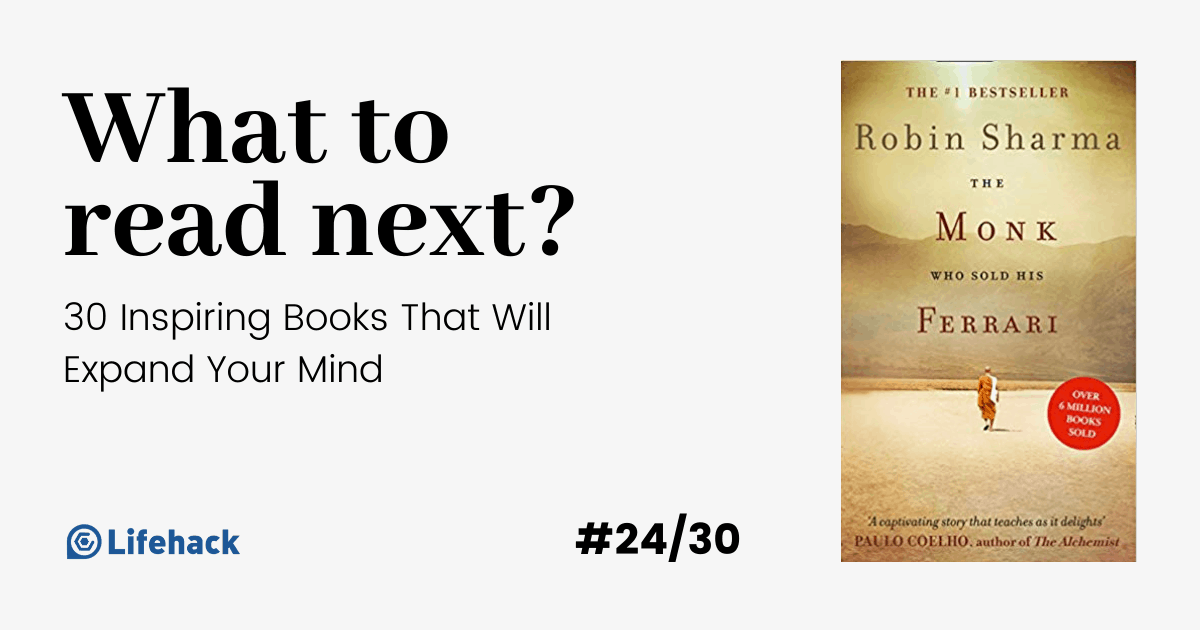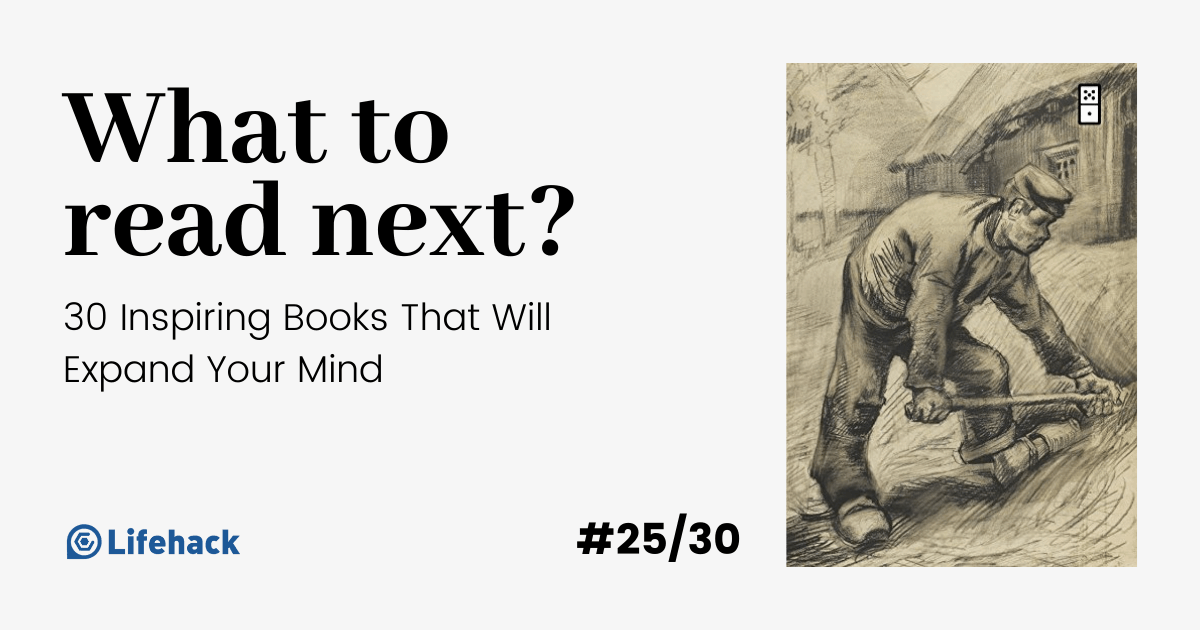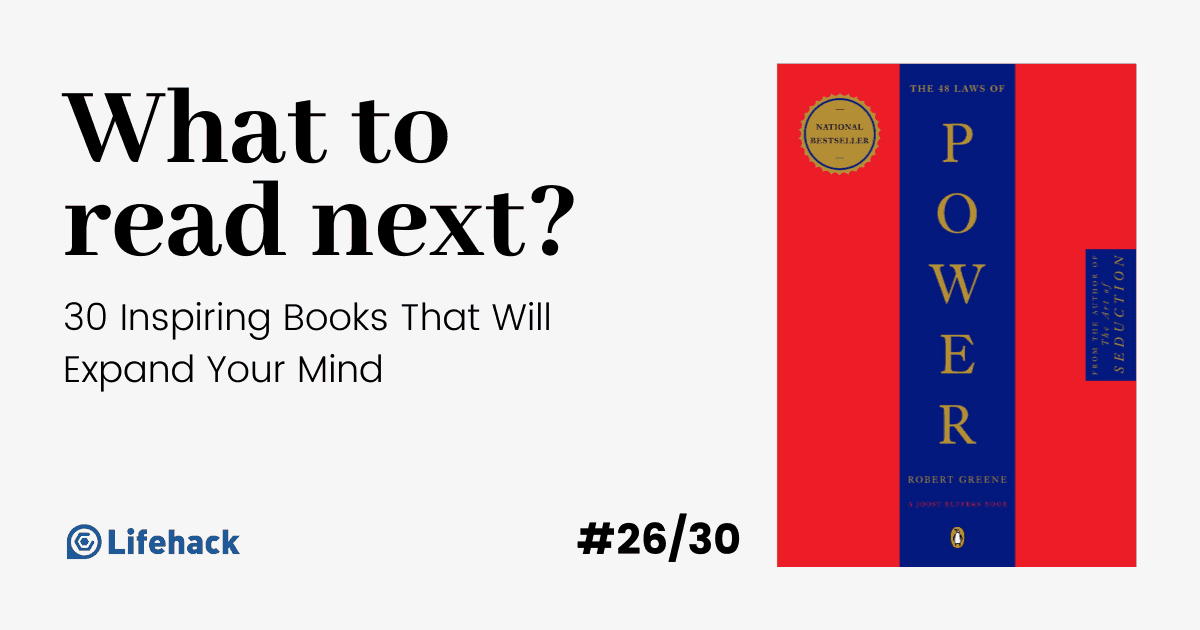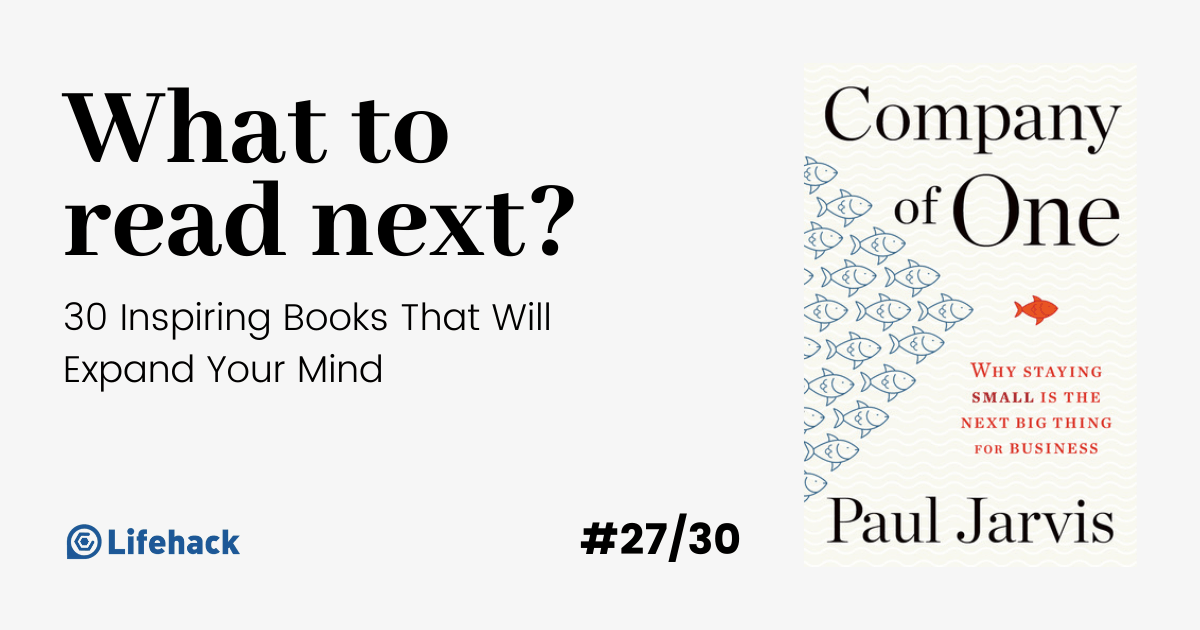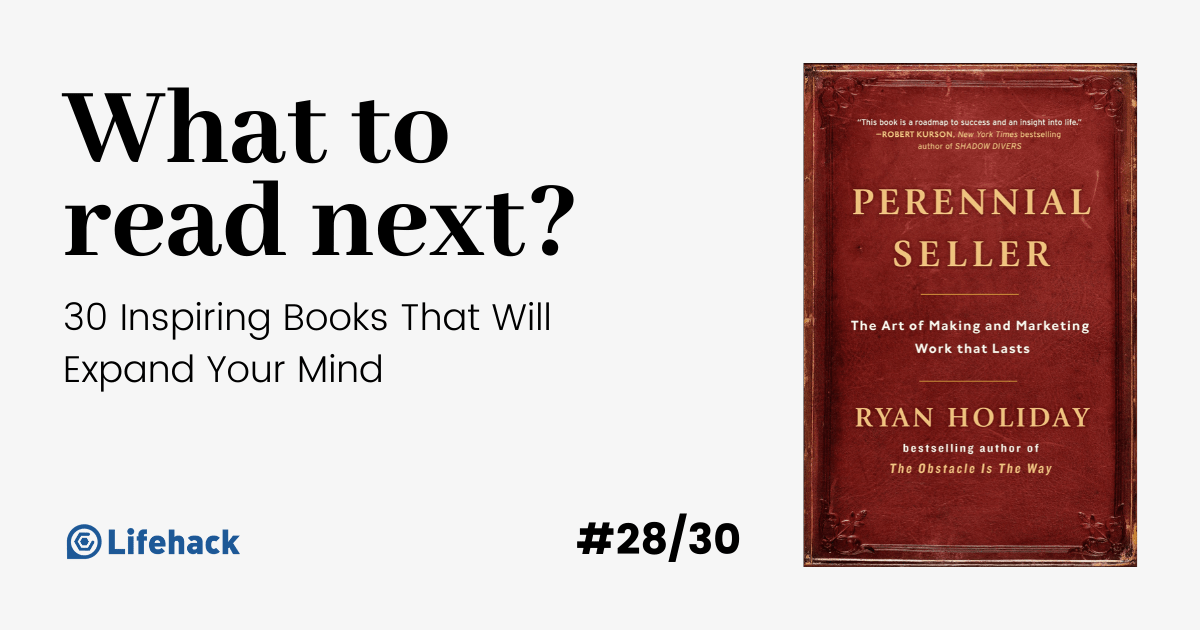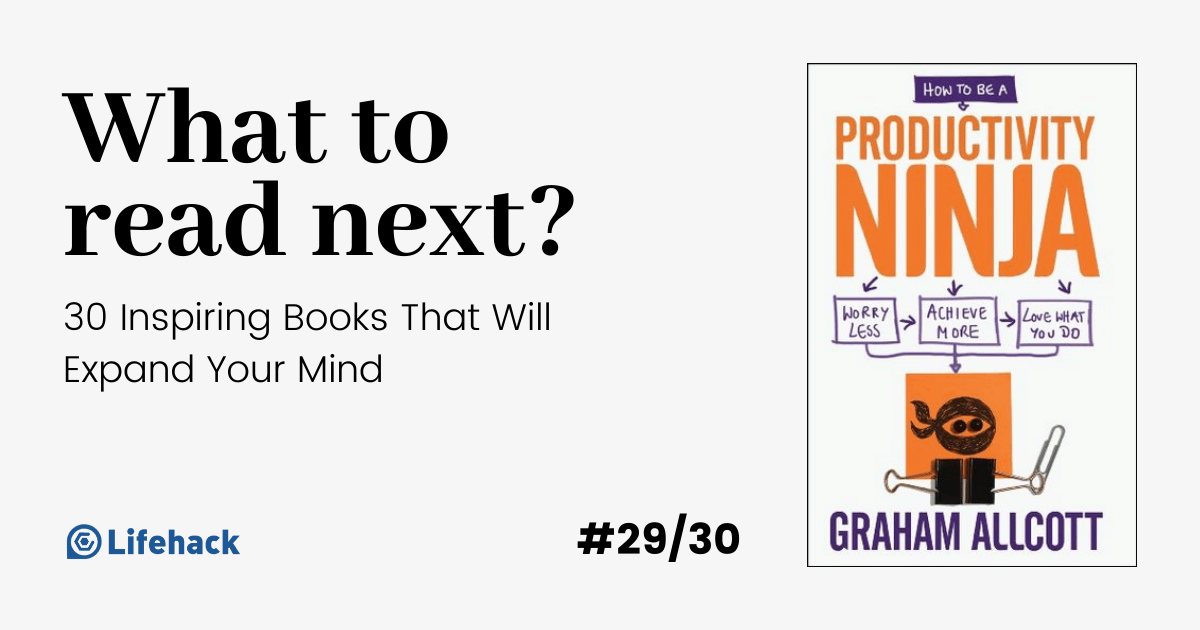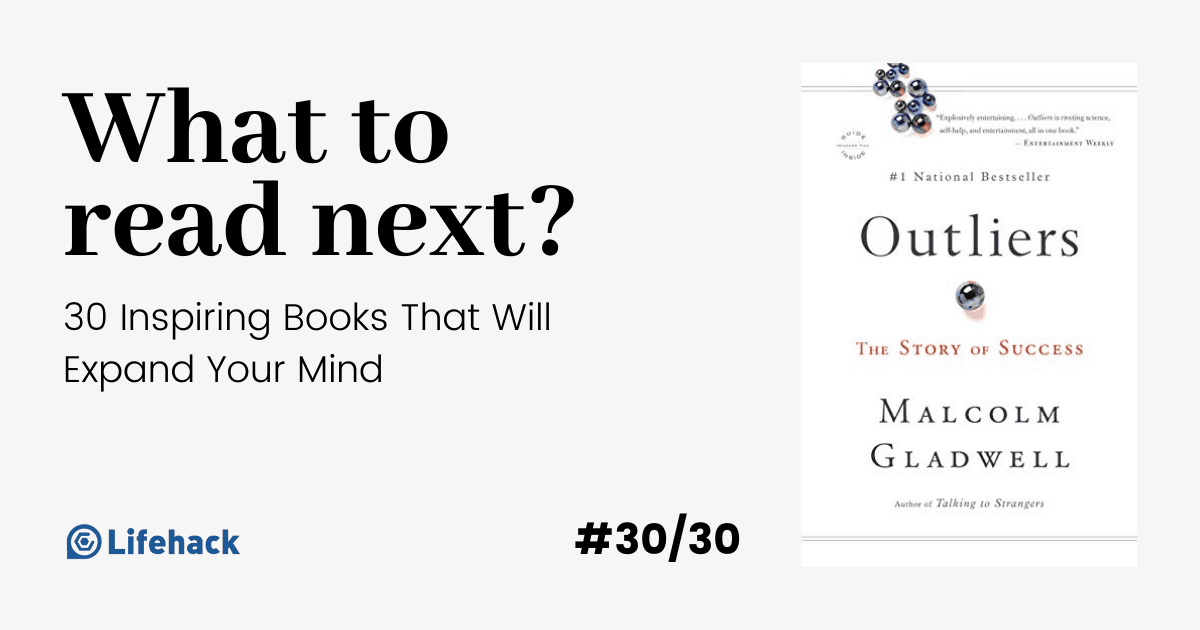Last week I spent some time with a local community I used to hang out with, and we talked about our goals and new year resolution for 2020. One of the most common goals everyone—from young adults in their 20s to experienced seniors in their 50s—is to read more. It’s a common New Year’s resolution next to losing weight and eating healthier. But there are two problems. First, we find it challenging to start reading or to read more. If that’s something you struggle with, here are 15 ways to help you overcome that and start reading more. The second problem? We’re not sure what to read next, and no one wants to waste time picking up a book and only find out it sucks. If that sounds familiar to you, this article is for you. Here I share 30 of my most recommended books that would expand your mind and, hopefully, transform your life. And unlike other book recommendations, I read all these books myself — you can check out my book notes here.
1. Principles by Ray Dalio
Ray Dalio is the founder and CEO of Bridgewater Associates, one of the top hedge funds in the United States, with over $160 million under management. In his book, Principles, Dalio shares the fundamental truth—principles he uses his organization and personal life—that got him to where he is today. The key takeaway is to come up with your own set of principles like Ray Dalio did, so you can use them, again and again, to make better and faster decisions in both your work and life. Get the book here!
2. Dollars and Sense Dan Ariely and Jeff Kreisler
Dollars and Sense is a book that combines two of my favorite topics: Money and Psychology. The authors, Dan Ariely and Jeff Kreisler share how most of us think about money—the wrong way—and the mistakes we make with it. This additional layer of awareness then helps us make better money decisions. It’s impossible to get everything about money right (after all, we’re human), but we can strive to get it less wrong. Get the book here!
3. Mastery by Robert Greene
The author, Robert Greene, believes that every one of us can become a master of our craft and work. He sees achieving mastery in your respective field as the ultimate form of power.[1] In Greene’s perspective of achieving mastery in your field, he lays out the three distinct stages of attaining mastery. First, apprenticeship – the phase where you learn as much as possible. Second, active creative – it is the phase where you are actively testing your ideas out. Then finally, mastery – it is where you combine skills and intuition to create something truly great. Get the book here!
4. Obliquity by John Kay
Like many great books, Obliquity surrounds one single idea: our goals are best achieved indirectly. The author, John Kay, then supports the idea with historical events, politics, businesses, and personal experiences. Instead of setting a goal and working hard for it, we can only learn about our objectives and how to achieve them through the process of risk-taking and discoveries. Get the book here!
5. Awaken the Giant Within by Tony Robbins
I started writing my first blog post after reading Awaken the Giant Within, and then my entire career of writing and marketing happens from there. Tony Robbins is a strong personality and voice in personal development. The key idea is this: every life outcome is the result of your decision — which means it’s in your ability to create an outcome you want.[2] The book then moves on to talk about everything from beliefs to mental stats to emotions that help us make a better decision. Get the book here!
6. Night School by Richard Wiseman
Professor Richard Wiseman has written several bestselling psychology books in the past decade. And one of his latest book (published in 2014), Night School, reveals the latest research and new discoveries of sleep science. The book covers many topics on sleep that include the function of sleep in our lives, how to improve sleep, myths of sleep-learning, how dreams work, and more. Get the book here!
7. The $100 Startup by Chris Guillebeau
The $100 Startup is the book you need if you’re interested in starting a micro-business. Chris Guillebeau shares many real-life case studies to prove the possibility of running a profitable business with an extremely small team. The books also packed with useful insight in starting and running a small business from how to position yourself to ways to building an audience and from validating your business ideas to scaling your operation for more revenue. Get the book here!
8. The Narrow Road by Felix Dennis
The Narrow Road is not the typical go-to book. It’s a straightforward—occasional rude—guide of money-making that every entrepreneur needs to know. Like Principles by Ray Dalio, Felix Dennis, a renowned publisher in the United Kingdom (the company that created Maxim), shares the wisdom and insights he learned (88 steps and tips in total) in getting rich and finding success. The Narrow Road, published in 2010, was republished as How to Make Money in 2011, and Felix Dennis passed away a few years later in 2014. Get the book here!
9. The Power of Habit by Charles Duhigg
Our life outcomes are the results of our habits. Unfortunately, most people have no idea how habits are formed and how to transform them for good. That’s what makes The Power of Habit my top recommendation. Charles Duhigg delivers the topic well with tons of research on behavioral psychology to uncover how habits work. He then shares practical techniques to overcome bad habits and develop good ones. Get the book here!
10. Ego is the Enemy by Ryan Holiday
Ryan Holiday is one of my favorite authors, and his book Ego is the Enemy hasn’t disappointed me. As the book title implied, the biggest enemy we have in life is not other people or unforeseen circumstances but our own ego. The book covers how our ego becomes an enemy in three phases of our lives—aspire, success, and failure—and how to kill it before it takes over everything. Get the book here!
11. How We Learn by Benedict Carey
Learning is far beyond staying disciplined with our training and practices. And How We Learn is the book that dives into the topic of learning using science and research. The book reveals the brain science on how we create new memories, store them, and retrieve them when we need them to explain how learning works, and then how we can learn more effectively. Get the book here!
12. David and Goliath by Malcolm Gladwell
There are always polarizing views on Malcolm Gladwell’s works, but I believe only a few would disagree that David and Goliath is indeed a great book. The goal he has with this book is to change how we see strengths and weaknesses, advantages and disadvantages, blessings, and misfortunes. Gladwell did that incredibly well by first introducing the story of David and Goliath, and then further presenting the idea with more stories and case studies. Get the book here!
13. Think and Grow Rich by Napoleon Hill
If you’ve been reading or looking for book recommendations for some time, Think and Grow Rich shouldn’t be a strange title for you. It’s the father of self-improvement books and written by Napoleon Hill, first published in 1937. Napoleon Hill spent a good 20 years of his life in learning and analyzing how well-known men find success and get rich. He concluded the #1 key—or better put, tool—to grow wealth is our mind. Get the book here!
14. The Hour Between Wolf and Dog by John Coates
John Coates was a trader on Wall Street before becoming a neuroscientist and psychologist working—and publishing The Hour Between Wolf and Dog, a book—on the biology of risk-taking. The author used his experiences and observations when he was the trader, to explore the science behind human risk-taking and share how our brains and bodies work when we’re under pressure. Get the book here!
15. The 7 Habits of Highly Effective People by Stephen Covey
Ask any successful person about their favorite self-improvement books, The 7 Habits of Highly Effective People will surely be on the list. And it’s not happening by accident: sticking to just any one of the habits in this book can massively transform your life. The seven habits are not so much of a daily routine or practice. Instead, they are a set of principles that help you make better decisions, increase your productivity, and improve your relationships and synergy with people around you. Get the book here!
16. Unshakeable by Tony Robbins
Tony Robbins interviewed 50 of the world’s top financial minds to write and publish his gigantic 700-page book, Money: Master The Game. Unshakeable is more like a light version of Money: Master The Game. The book acts as the step-by-step playbook to financial success regardless of where you are now. It’s an excellent introductory book for people who want to start investing and do it right. Get the book here!
17. The Little Book of Stoicism by Jonas Salzgeber
I read a lot about Stoicism in pieces here and there, but it was never easy to find a source to understand Stoicism as a whole. Fortunately, The Little Book of Stoicism was written to solve this struggle. Jonas Salzgeber spent the first half of the book introducing the Stoic philosophy, explaining what it is, and what Stoics before us and now thrive for. And then, the next half of the book shares 55 practices to start living a life with resilience, confidence, and calmness. Get the book here!
18. The 4-Hour Work Week by Tim Ferriss
The 4-Hour Work Week is no longer the new kid in the block, but what it covers is still as useful as it was ten years ago when it first published. It was Tim Ferriss’s first book that launched his career to a great height one after another. The book introduces a paradigm shift from being cash-rich (having millions sitting in the bank) to be the New Rich (doing what you want anywhere you want at anytime you want). It then provides a framework to help accomplish just that. Get the book here!
19. Rich Dad Poor Dad by Robert Kiyosaki
Rich Dad Poor Dad is the long-time bestselling book in the personal finance book. If you haven’t read it yet, get yourself one and read it now. I can’t entirely agree with everything in the books, but it undeniably changed my life. The book suggests that financial education is the key to financial success. And the first step is to understand the real definition and an asset and a liability. Then, accumulate assets and avoid liabilities. Get the book here!
20. The Art of Thinking Clearly Rolf Dobelli
If you love geeking out on topics like psychology and human behavior, this is the book for you. The book consists of 99 cognitive errors we’re facing every minute in our daily lives. The author, Rolf Dobelli stresses that human thinking in itself is not pure but prone to error. By understanding these mental errors and cognitive traps, we gain the ability to predict—and to a certain degree, but never wholly—fix our mistakes. Get the book here!
21. So Good They Can’t Ignore You by Cal Newport
“Follow your passion” is the common wisdom and advice people give, receive, and cheer about. But the author, Cal Newport, thinks otherwise and challenges the idea in So Good They Can’t Ignore You. Instead of following the flawed “follow your passion” advice, Newport shares a path to becoming so good at your craft, so you’re valuable enough—high career capital in the book—to demand the life you want to live. Get the book here!
22. The Subtle Art of Not Giving a Fuck by Mark Manson
In his book, Mark Manson shares a counterintuitive idea of living a good life: seeking happiness directly is the path to hell. Instead of thinking that we deserve all the good things in life, and dwell and complain about it when we don’t get them, ask ourselves what we’re willing to struggle to get what we want. Get the book here!
23. Smart Choices by John Hammond, Ralph Keeney, and Howard Raiffa
Our lives are surrounded by all kinds of decisions, big and small, and most of us never have a formula for ones that are important and high in stake. Smart Choices provides a framework to do just that. The book introduces the PrOACT method to guide us in making better decisions. PrOACT is the acronyms of Problems, Objectives, Alternatives, Consequences, Trade-offs. For complex decisions, it suggests we also think about the uncertainty, our risk tolerance, and any other linked decisions. Get the book here!
24. The Monk Who Sold His Ferrari by Robin Sharma
The Monk Who Sold His Ferrari tells a story a stressful lawyer sold all of his possessions to study the virtues of the Sages of Sivana in the Himalayan mountains. And these virtues open up the insights of living a good life of true calm and happiness. Robin Sharma presents its insights and lessons in the format of a fiction novel that makes it easy for the readers—you and me—and absorb and internalize. Get the book here!
25. Do the Work by Steven Pressfield
A short and sweet read. Steven Pressfield is an artist, and the greatest enemy of all artists is the resistance against doing the work. Do The Work is a book that addresses that—calling out the demon, seeing it right into the eyes, conquering it with self-discipline, and embracing it with courage. Get the book here!
26. The 48 Laws of Power by Robert Greene
Like the book title implied, this book talks about the laws of gaining power and staying in power of any form. To some people, it might be rude and shows a dark side of how the world works. The book suggests that the game of power is inescapable even if you don’t want to play it. Every one of us is born in the game, and learning how to play it doesn’t just help you thrive, but keep you alive. Get the book here!
27. Company of One by Paul Jarvis
Paul Jarvis is a unique voice in the business and marketing space. And the book Company of One is the best representation of that because it’s not your regular business book. Instead of growing for growth’s sake, the book suggests that staying small can be more beneficial for a business. It then supports the idea with real-life case studies on why business owners choose to stay small and how that makes the business more profitable and brings more joy to the owner running it. Get the book here!
28. Perennial Seller by Ryan Holiday
In the book Perennial, Ryan Holiday explores how great artists in times before us create works that, not just famous for months and years, not last for the decades to come. He then laid out the fundamental principles and steps to achieve that from how to master our craft to how to market it, and from ways to position ourselves to the mindset that helps us grow beyond our work. Get the book here!
29. How to Be a Productivity Ninja by Graham Allcott
Graham Allcott is the founder of Think Productive, a company that runs public and in-house workshops on productivity throughout the United Kingdom. How to Be a Productivity Ninja is everything that he learned on how to become more productive from his own experiences and after working with countless clients. The book shares everything productivity-related from high-level concepts to mental frameworks to battlefield strategies and tactics. Get the book here!
30. Outliers by Malcolm Gladwell
In the book Outliers, Malcolm Gladwell suggests that success follows a predictable course and uses stories, research, and histories to prove his point. Surprisingly, it’s not the brightest and the most talented who succeed, nor those who make the right decision and take the best possible action. But it is instead a gift—given to those who have the strength and mind to seize it. Get the book here!
All You Need is One Single Good Idea
There are certainly more books I can recommend, with some of those that I haven’t read but only hear good words about. However, these 30 books are way more than enough for now. Pick up one or two books on this list and read them. Remember: You’re always ONE good idea away from your life transformed.
More Recommendations on What to Read Next
20 All-Time Motivational Books to Inspire You 35 Books on Productivity and Organizational Skills for an Effective Life 27 Must-Read Books Every Novel Lover Should Read at Least Once
Featured photo credit: sincerely media via unsplash.com
